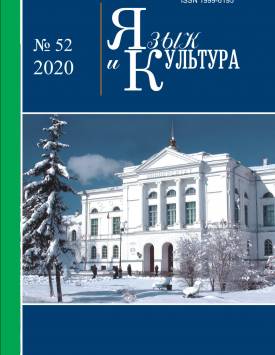Quality Assurance Strategies of Teaching Russian Language and Culture for Foreign Students
This article aims to analyze strategies for ensuring the quality of the Russian language and culture teaching in the process of developing and implementing educational programs for foreign students. The authors of the article consider ways of implementing the strategic directions of the policy of the Russian Federation to promote and popularize the Russian language and culture in working with students living in other countries and coming to study in Russia. The study is based on strategic management theory in focus of the target and methods of achievement, the importance of conditions for determining a strategy. The theory of quality management, the principles of international quality standards ISO and international standards for risk management ISO 31000 are considered as the main methodological issue. The principle of leadership and its components are the basis for the implementation of quality management strategies. Case study as the main research method included study of the practices of ensuring the quality of the Russian language and culture teaching, which realized by Perm State Humanitarian Pedagogical University. The comparative structure of the analysis is provided by highlighting the components of the consideration of practices: goals, directions of its implementation, mechanisms and target indicators that ensure quality, as well as a characteristic of the changing resource base for implementing the strategy. The article describes the results of the case-study of strategies implemented at the Perm State Humanitarian Pedagogical University to ensure the quality of the Russian language teaching for foreign students. The results of the case-study suggest the following. The basis of the strategy for the development and implementation of educational programs related to the teaching of the Russian language and culture to foreign students is the target, which assumes an understanding of the needs of the customer of the education program such as the student and (or) a foreign state that is. Thus, the first considered strategy of "Pushkin Centers" aims to promote the Russian language and culture of Russia on the basis of mutual popularization of the languages and culture of the partner countries. The strategy of training teachers for International Baccalaureate schools involves expanding the scope of study and understanding of the Russian language and culture as a value in the international community. The strategy for the implementation of educational programs in the field of art involves the promotion of the Russian language and culture through interest in Russian art. The analysis discusses the following mechanisms for implementing strategies. The first strategy realized through teachers and students exchange and integration events for the foreign students. The second strategy is the implementation of internationally accredited educational programs in English and Russian. The third strategy is the pathway involves taking some elective units, including an elective focusing specifically on Music, Art, Drama, Russian ballet etc. Infrastructure is an important part of the strategy. The components of the infrastructure are described, removing the risks of implementing strategies to ensure the quality of teaching the Russian language and culture in work with foreign students. Authentic resources in Russian and English are a tool to compensate for the risk associated with the subjectivity of information. The risk posed by level variability is offset by staff and managers professional development. To remove the risks of distrust to the quality of distance learning, the familiar to students’ resources allows. To compensate for the risk of reduced realization, appropriate equipment and convenient conditions are created. Certificates that provide quality assurance and international recognition are important for all foreign students. Quality assurances are ensured by compliance with international quality standards, the university has an ISO quality certificate, and international accreditation of programs. Quality management is based on the principles: openness and support for shared values, fairness and ethical behavior at all of the organization, creating a culture of trust and honesty, encouraging commitment to quality throughout the organization, providing employees with the necessary resources, training and authority, a positive example leaders for the organization's employees. Thus, this article examines the characteristics of the process of managing the quality of teaching the Russian language and culture for foreign students. A direction for further research is the evaluation and external and internal quality assessment of education.
Keywords
higher education, professional education, education quality management, risk management, strategic management, Russian as a foreign languageAuthors
| Name | Organization | |
| Egorov Konstantin B. | Perm State Humanitarian Pedagogical University | egorov@pspu.ru |
| Zakharova Vera A. | Perm State Humanitarian Pedagogical University | zaharova_va@pspu.ru |
References

Quality Assurance Strategies of Teaching Russian Language and Culture for Foreign Students | Yazyk i Kultura – Language and Culture. 2020. № 52. DOI: 10.17223/19996195/52/11
